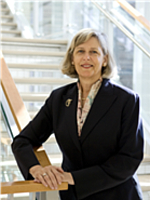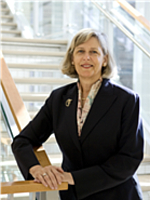Reflective Writing with Parents and Siblings of Cancer Survivors
Jim Stubenrauch is a CHMP senior fellow. Follow him on Twitter: @jimstuben.
 It was nine o’clock on Sunday morning, October 14, and an audience of young cancer survivors, their parents and siblings, and physicians, social workers, and other clinicians were gathered in the spacious third-floor library of the New York Academy of Medicine, listening to a keynote address by reality television star Kathy Wakile.
It was nine o’clock on Sunday morning, October 14, and an audience of young cancer survivors, their parents and siblings, and physicians, social workers, and other clinicians were gathered in the spacious third-floor library of the New York Academy of Medicine, listening to a keynote address by reality television star Kathy Wakile.
CHMP senior fellow Joy Jacobson and I were there, too—and no, we hadn’t accidentally wandered into an episode of The Real Housewives of New Jersey.
The occasion was the first-ever “Campference”—part camp, part conference—of the Children’s Brain Tumor Foundation (CBTF), an organization dedicated to improving “the treatment, quality of life, and the long-term outlook for children with brain and spinal cord tumors.” The CBTF, which marks its 25th anniversary this year, supports research, education, and advocacy to help both survivors and their families.
Jim Stubenrauch is a CHMP senior fellow. Follow him on Twitter: @jimstuben.
 It was nine o’clock on Sunday morning, October 14, and an audience of young cancer survivors, their parents and siblings, and physicians, social workers, and other clinicians were gathered in the spacious third-floor library of the New York Academy of Medicine, listening to a keynote address by reality television star Kathy Wakile.
It was nine o’clock on Sunday morning, October 14, and an audience of young cancer survivors, their parents and siblings, and physicians, social workers, and other clinicians were gathered in the spacious third-floor library of the New York Academy of Medicine, listening to a keynote address by reality television star Kathy Wakile.
CHMP senior fellow Joy Jacobson and I were there, too—and no, we hadn’t accidentally wandered into an episode of The Real Housewives of New Jersey.
The occasion was the first-ever “Campference”—part camp, part conference—of the Children’s Brain Tumor Foundation (CBTF), an organization dedicated to improving “the treatment, quality of life, and the long-term outlook for children with brain and spinal cord tumors.” The CBTF, which marks its 25th anniversary this year, supports research, education, and advocacy to help both survivors and their families.




